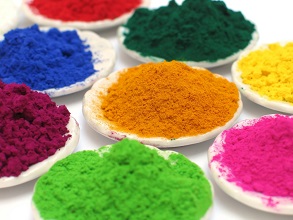Natural food colors
 General information
General information
The colour of food has always had an important effect on people's perception, because colour is an essential factor for acceptance. Maintaining the natural colour of food while it is being produced or stored for future use is therefore immensely important. A weak colour makes food appear old and inedible.
Many consumers associate natural products with superior quality. A good, natural-looking colour in food or a drink signals high quality.
Features & benefits
The addition of colours to food prevents the loss of colour. Colour can also be a trademark for a particular product. The use of natural dyes ranges from confectionery and bakery products to beverages, seasonings and dairy products. Especially with the patented "Clear Whey Natural Cheese Color" technology, coloured cheese can be produced without colouring the whey.
Products
The following natural dyes are available in powder or liquid form:
- Annatto E 160b
- Anthocyanin E 163
- Betanin/ Red beet E 162
- Capsanthin/ Paprica E 160c
- Carmine/ Cochineal E 120
- Carotene E 160a
- Chlorophyll E 140
- Curcumin E 100
- Elderberry E 163
- Lutein E 161b
Food law aspects & certifications
Cybercolors is ISO 9001 and FSSC 22000 certified. Most raw materials are Halal and Kosher.
Sustainable production is certified by Origin Green Ireland.
The use of natural colours is regulated by EC Regulation No 1333/2008 of 16 December 2008 on food additives.